The mission of the Fair Food Standards Council (FFSC) is to monitor the development of a sustainable agricultural industry that advances the human rights of farmworkers, the long-term interests of growers, and the ethical supply chain concerns of retail food companies through implementation of the Fair Food Program.
Fourteen years since its inception, the Fair Food Program has entered into a phase of truly dramatic expansion: During 2024 and 2025, the program’s protections will reach thousands more farmworkers, at over 30 additional farms in 13 new states. This accelerated growth was prompted in large part by a new initiative designed by the US Department of Agriculture, launched in 2024, to expand the H-2A, or “guestworker” program, while also protecting those workers from abuse. As part of that pilot program, the USDA designated the FFP as the highest – or “platinum” – level of human rights protection for US farmworkers and offered farms the highest level of financial subsidies for joining the FFP, to protect guestworkers in their operations.
As of 2025, the FFP is present in 22 states in the US as well as Chile and South Africa. The program’s international growth, along with the possibility of expanding to still more countries in the years ahead, is supported by the International Labor Affairs Bureau of the U.S. Department of Labor. As a result, workers and growers in the flower industry in those countries are already benefiting from FFP implementation, with broader expansion into the fruit (South Africa) and salmon (Chile) industries on the runway.
The FFSC looks forward to the collaborative partnerships that have been initiated with these new growers, and the potential for future growth in states and countries where growers are interested in adopting the unique benefits and protections afforded by the Fair Food Program.
